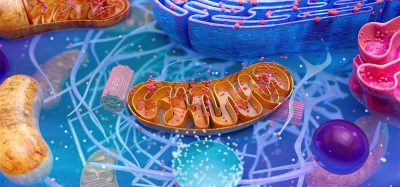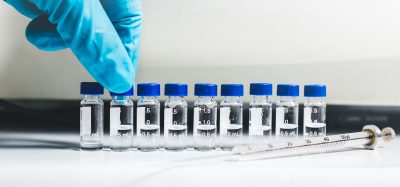Blocking nitrosylation boosts treatment for NRAS melanoma
Posted: 6 May 2025 | Drug Target Review | No comments yet
Researchers at Moffitt Cancer Center have discovered that blocking a chemical process called nitrosylation can make aggressive NRAS-mutant melanoma more responsive to treatment.


A new study from researchers at the Moffitt Cancer Center reveals a promising strategy to treat one of the most aggressive forms of melanoma. Published in Cancer Research, the study shows that blocking a specific chemical process known as nitrosylation, enhanced the effectiveness of existing treatments and triggered a stronger immune response against the cancer.
Targeting NRAS-mutant melanoma
The study focused on NRAS-mutant melanoma, a subtype that accounts for approximately 25 percent of all melanoma cases. NRAS stands for neuroblastoma RAS viral oncogene homolog. This form of skin cancer involves a mutation in the NRAS gene, leading to uncontrolled cell growth and tumour development.
This form of skin cancer is particularly difficult to treat, often resisting both immunotherapies and targeted drugs.
“NRAS-mutant melanoma has very few effective treatment options,” said Dr Sanjay Premi, co-lead author and assistant member in the Tumour Microenvironment and Metastasis Department at Moffitt. “Our research aims to change that.”
The role of nitrosylation in cancer survival
Nitrosylation is a chemical process that can help cancer cells survive therapies and avoid detection by the immune system. The Moffitt team discovered that blocking nitrosylation weakened the cancer’s defences, making it more vulnerable to attack.
The Moffitt team discovered that blocking nitrosylation weakened the cancer’s defenses, making it more vulnerable to attack.
“When we block nitrosylation, we kill the cancer cells and help the immune system attack the tumor,” Premi explained.
The researchers specifically examined how nitrosylation interacts with MEK inhibitors, a type of drug that targets the Mitrogen-Activated Protein Kinase Kinase Extracellular Signal Regulated Kinase (MEK-ERK) signalling pathway, a crucial driver of tumour growth in NRAS-mutant melanoma. They found that blocking nitrosylation significantly increased cancer cells’ sensitivity to MEK inhibitors, resulting in slower tumour growth in both lab experiments and animal models.
Activating the immune system
One of the most interesting findings from the study was that blocking nitrosylation induced immunogenic cell death. This process causes tumour cells to emit distress signals, drawing in CD8-positive T cells and dendritic cells, key players in the immune system’s cancer-fighting arsenal.
“This approach not only restricts tumour growth but also enhances the body’s own anti-cancer immune response,” said Dr Jyoti Srivastava, co-lead author and senior research scientist at Moffitt. “It could lead to more durable responses for patients who currently have limited options.”
A promising path forward
With few effective treatments currently available for patients with NRAS-mutant melanoma, these findings offer a potential new pathway to improve outcomes. The researchers are now looking at investigating further into combination therapies involving nitrosylation inhibitors, not only for melanoma, but possibly for other cancers as well.
The study adds to growing evidence that targeting tumour survival mechanisms and enhancing the immune response can offer powerful new strategies in the fight against cancer.
Related topics
Cancer research, Drug Development, Drug Discovery, Immunotherapy, Molecular Targets, Therapeutics, Translational Science
Related conditions
Melanoma
Related organisations
Moffitt Cancer Center








